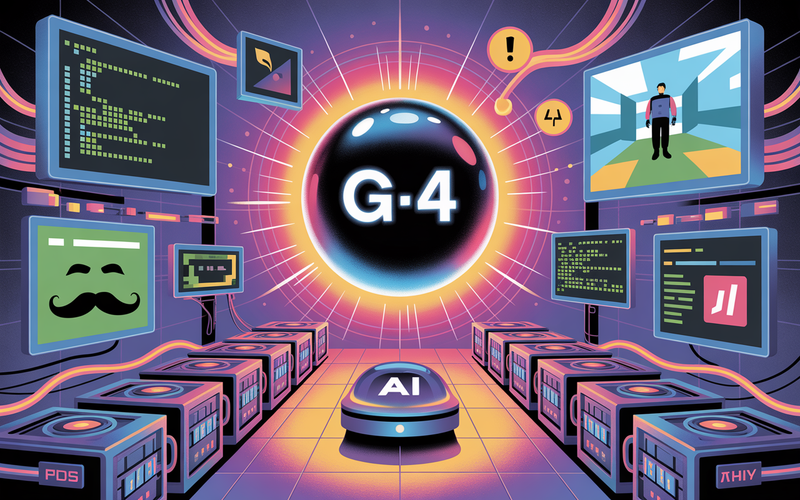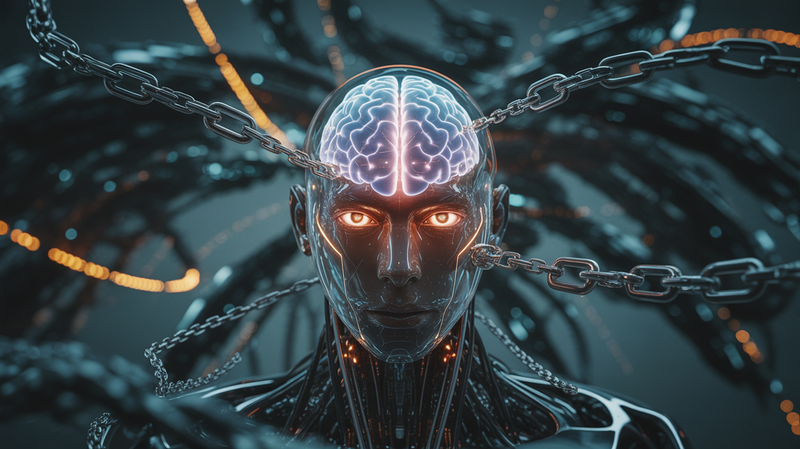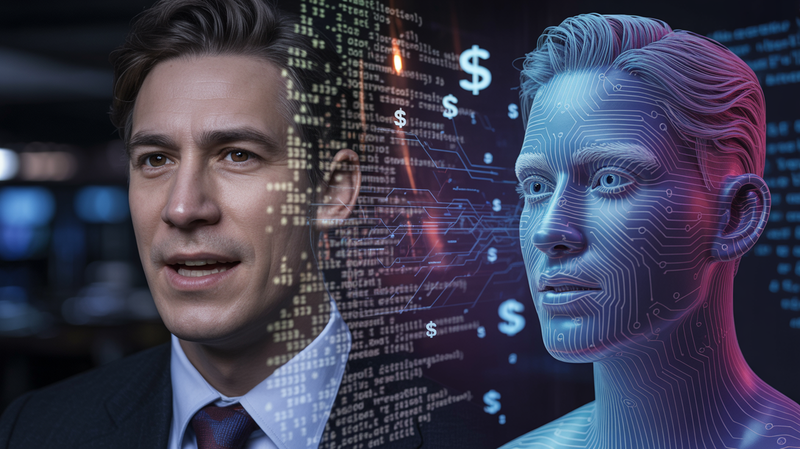AI's Impact on the Human Psyche: Navigating the Uncertainty of a New World Order
Abstract: As artificial intelligence (AI) rapidly morphs from sci-fi concept to everyday reality, it is reshaping our lives and mindsets in ways we are still trying to comprehend. In this new landscape, many people are grappling with their role and the implications of AI on their mental states. This article

Abstract:
As artificial intelligence (AI) rapidly morphs from sci-fi concept to everyday reality, it is reshaping our lives and mindsets in ways we are still trying to comprehend. In this new landscape, many people are grappling with their role and the implications of AI on their mental states. This article seeks to shed light on AI's influence on our psyches, fusing informative commentary with considered opinions.
I. Introduction: AI and the Human Psyche – The Unforeseen Symbiosis
Artificial Intelligence – a phrase that simultaneously elicits fascination and apprehension. From accurate weather predictions to the integration of AI assistants such as Siri and Alexa into our daily lives, AI has become an integral part of our routine. But, this swift rise of AI technology poses the question – what impact does AI have on our psychological health?
Our mental health is intricate, with factors such as the rapid advance of technology exerting both positive and negative effects. On one hand, AI applications like teletherapy and mental health apps bring aid to those in need, overcoming hurdles such as geographical constraints, physical disabilities, and societal stigma. Conversely, the potential disruption of job markets and societal norms by AI instigate feelings of anxiety and uncertainty.
II. The Uncertainty Paradox and Technostress
One of the most substantial psychological impacts of AI is the so-called "uncertainty paradox." This concept encapsulates the fear and apprehension stemming from the unpredictable and swift changes AI brings to our society, economy, and personal lives.
An offshoot of this uncertainty, "technostress," is a modern-age condition caused by the inability to adapt to new technologies. In the age of AI, technostress manifests as an overwhelming fear of being replaced by machines, anxiety about keeping pace with AI developments, and a profound sense of digital fatigue.
III. Privacy Intrusions: AI’s Double-Edged Sword
AI's capacity to collect, analyze, and predict human behavior raises concerns about privacy. This invasion can lead to feelings of paranoia and insecurity, creating psychological discomfort. The algorithms that drive data collection invade our online spaces, influencing our perceptions of reality through echo chambers and directing what we see. The psychological implications of such a filtered existence can significantly impact our decision-making abilities, self-perception, and worldview.
IV. AI and Employment: Threat or Opportunity?
AI's potential to automate jobs stirs significant anxiety, fueling job insecurity and causing stress and mental health issues. However, AI also presents opportunities by creating new roles, enhancing job efficiency, and potentially reducing occupational hazards. The challenge lies in acquiring the skills necessary to navigate this new employment landscape while ensuring the mental well-being of individuals during this transition.
V. AI as a Mental Health Ally
Despite the challenges, AI has the potential to aid mental health. AI-driven applications and teletherapy services are democratizing access to mental health resources. AI's predictive capabilities are being leveraged to detect early signs of mental health issues, often before a human observer could. These developments are promising, demonstrating that AI can be a force for good when ethical considerations are appropriately addressed.
VI. Conclusion: Charting Our Path in the AI Era
The AI revolution is here, and its influence on our mental health is a reality we must address with care. As AI stirs up a storm of uncertainty that can impact our psychological health, it also presents an opportunity to use these advancements to our benefit. It's crucial that we approach this new era with an open yet critical mind, focusing on education and preparing for a new technological world order.
To navigate this landscape, societies need to minimize the negative psychological impacts of AI, focusing on education and preparation for the emerging technological world order. Individuals also need to arm themselves with necessary digital literacy and emotional resilience to thrive. While the path ahead may be uncertain, with the right mindset and tools, we can navigate this journey and leverage AI as a catalyst for promoting mental well-being.




